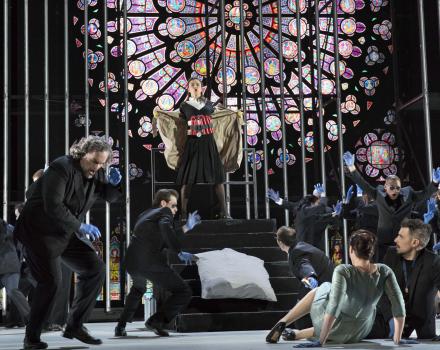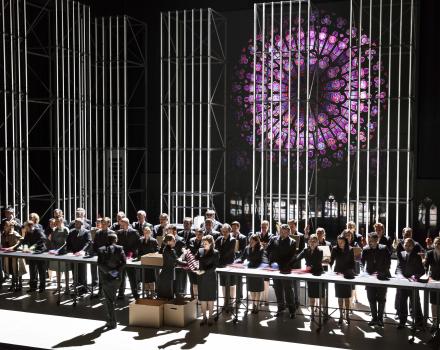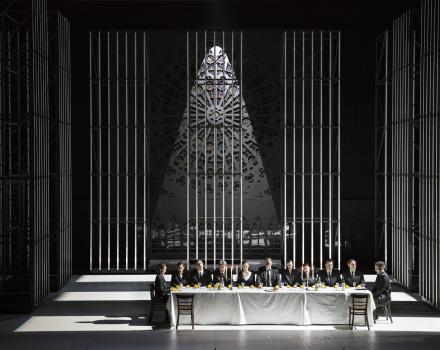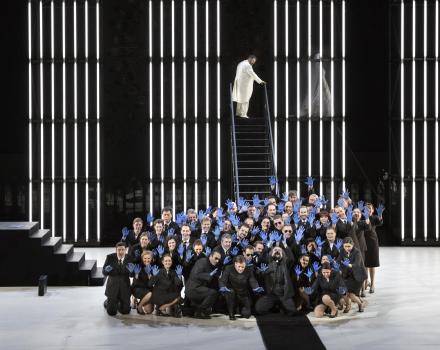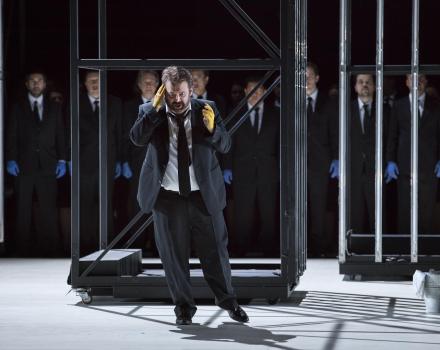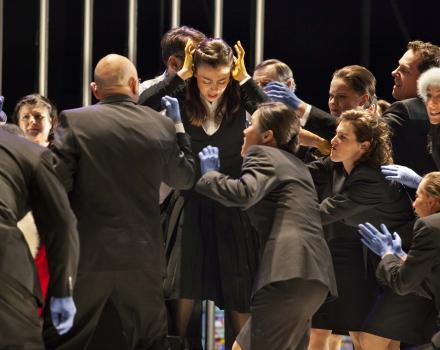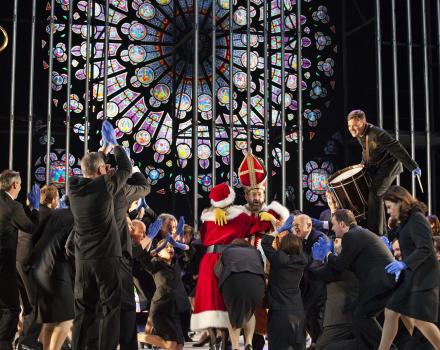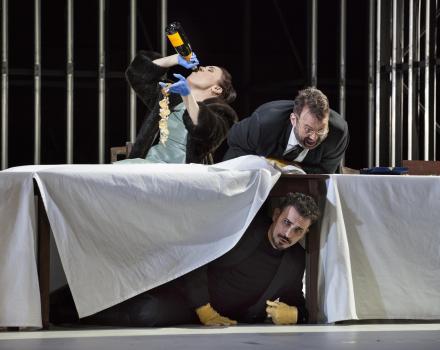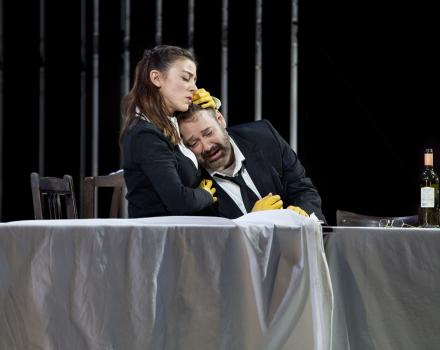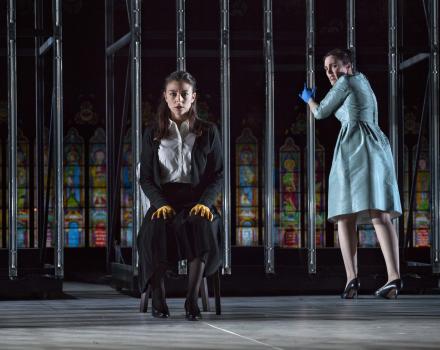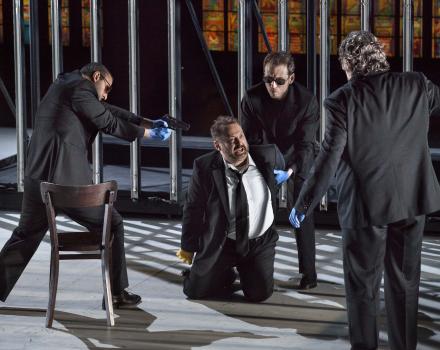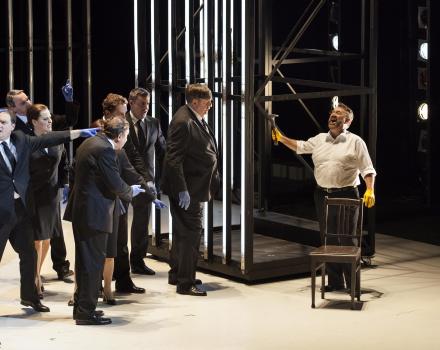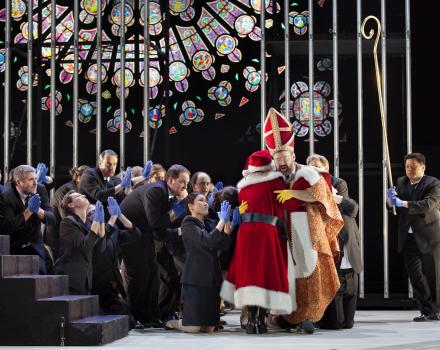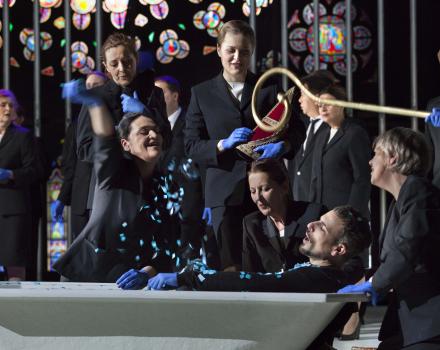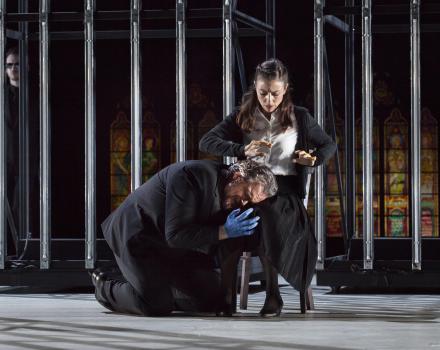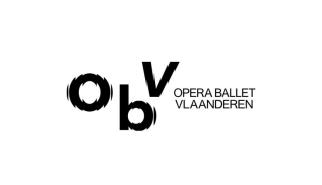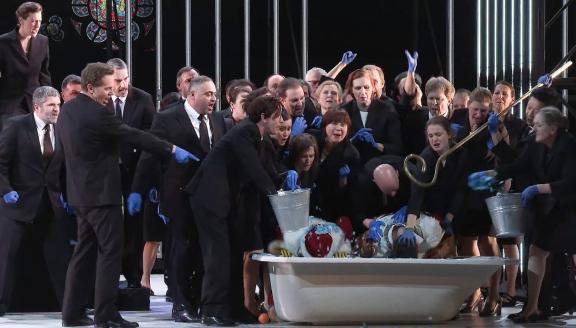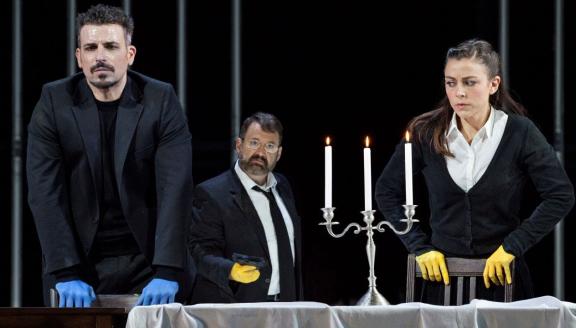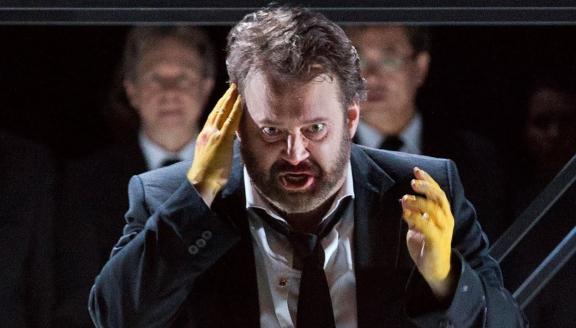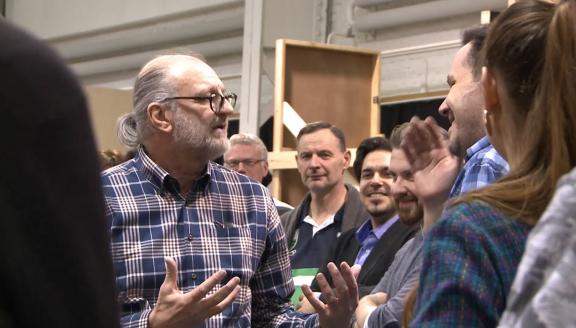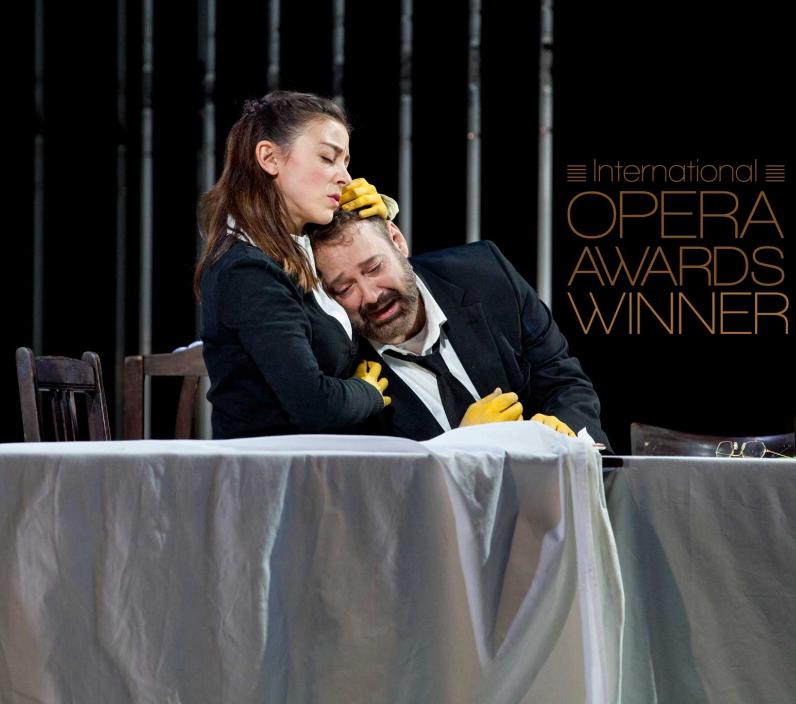

In a city gripped by religious fanaticism, a Jewish goldsmith and his daughter face the perils of being outsiders. A great secret could save their lives - or else bring death and revenge.
Roy Cornelius Smith and Corinne Winters star in this acclaimed production by director Peter Konwitschny from Opera Vlaanderen, Opera Company of the Year at the 2019 International Opera Awards.
Cast
Éléazar | Roy Cornelius Smith |
|---|---|
Rachel | Corinne Winters |
Princess Eudoxie | Nicole Chevalier |
Prince Léopold | Enea Scala |
Cardinal de Brogni | Riccardo Zanellato |
Ruggiero | Leon Košavić |
Chorus | Koor Opera Vlaanderen |
Orchestra | Symfonisch Orkest Opera Vlaanderen |
| ... | |
Music | Fromental Halévy |
|---|---|
Conductor | Antonino Fogliani |
Director | Peter Konwitschny |
Sets | Johannes Leiacker |
Lighting | Manfred Voss |
Costumes | Johannes Leiacker |
Text | Eugène Scribe |
Chorus Master | Jan Schweiger |
Revival Director | Marcos Darbyshire |
| ... | |
Video
The story
Act I
Church festivities are taking place to honour of the opening of the Council of Constance. The Jewish goldsmith Éléazar continues to work, invoking the general indignation of the partying Christians. The radical town guardian Ruggiero wants him and his daughter, Rachel, to be put to death, but Cardinal de Brogni intervenes and rescues them. He asks them to forgive the Christians, but Éléazar refuses given all he has suffered at their hands. In a second skirmish, the Jewish father and his daughter are rescued from the crowd by Prince Léopold, who is pretending to be a Jewish artist called Samuel. Rachel is in love with ‘Samuel’ and knows nothing of his true identity.
Act II
Rachel has invited ‘Samuel’ to celebrate Passover at her and her father’s house. Her suspicions are raised when he refuses to eat the piece of unleavened bread that she has given him. Suddenly, Princess Eudoxie, Léopold's wife, turns up to buy a gold chain from Éléazar to give as a present to her husband. ‘Samuel’ confesses to Rachel that he is a Christian. She is distraught, as a relationship between a Christian and a Jew is punishable by death. She is nevertheless willing to elope with him, but before they can leave they are confronted by Éléazar. When he learns of the guest’s true religion, he wants to kill him, but Rachel stops him. She hopes for a conversion and marriage, but for Léopold that is impossible and he is evicted from the house.
Act III
Rachel has followed ‘Samuel’ to the palace. She manages to enter and convince Eudoxie to hire her as a maid. During celebrations of Léopold's victory over the heretical Hussites, Éléazar arrives to deliver the gold chain. When Eudoxie goes to put it on her husband, Rachel and Léopold recognise him as their Passover guest. Rachel accuses the prince of romantic dealings with a Jew: herself. Cardinal de Brogni pronounces a curse on Léopold, Rachel and Éléazar, which Eléazar answers with a curse of his own towards the Christians.
Act IV
Eudoxie begs Rachel to withdraw her allegations. Rachel is still in love with Léopold and so to save him she acquiesces to the princess’s request. Cardinal de Brogni agrees to commute the prince’s sentence and promises to spare Rachel and Éléazar on condition that they convert to Christianity. In response, Éléazar reminds Brogni of the time many years ago when they both lived near Rome. Brogni was not yet a clergyman but a count, and he had executed Éléazar’s sons as heretics before banishing the goldsmith, forcing him to flee to Switzerland. Soon afterwards, bandits looted the count’s home while he was in the city and set it alight. Brogni believed that his wife and baby daughter had been killed in the blaze, but Éléazar tells the now-cardinal that his child was in fact saved by a Jew.
Brogni begs the goldsmith to tell him where his daughter is. Éléazar refuses to reveal the truth – that, on his way to Switzerland, he found the baby near death, abandoned inside the burn-out house, and rescued her, naming her Rachel and raising her as his own daughter. Éléazar promises to take the secret to his grave in order to get revenge on Brogni. Suddenly realising that his hatred of Christians could lead to Rachel’s death as well as his own, Éléazar momentarily changes his mind. But when he hears to cries of the Christian mob calling for his blood, he resolves again to have his revenge.
Act V
Rachel and her father are sentenced to death by being thrown into a cauldron of boiling water. The masses are already looking forward to the spectacle. Éléazar urges Rachel one last time to save herself by being baptised, but, though terrified, she accepts a martyr's death alongside her father. When the young woman is thrown into the cauldron, Éléazar reveals his secret to Brogni. The cardinal falls to his knees as the crowd celebrate their vengeance over the Jews.
Insights
5 things to know about La Juive
1° Grand opéra
A new and impressive genre of music theatre, grand opéra was developed in Paris in the early 1800s and enjoyed its golden age in the middle of that century. Although the form of these operas was not fully defined, they usually consisted of five acts and were often set in a historical context. This was not so as to provide an escape for the minds of the audience, but to show the parallels between the conflicts of the past and their own contemporary struggles for national identity, political influence and the freedom to worship in peace. Naturally, there was also a love story at the centre of it all. Grand opéra was also characterised by a preference for large, elaborate stage effects and a powerful orchestral.
2° Council of Constance
La Juive is set during the Council of Constance, which was convened by King Sigismund in 1414 to put an end to the Western Schism. A first attempt at this had already been made in 1409 during the Pisa Council, but that had only made the situation worse, so that there were now three popes instead of one. Finally, the council succeeded in relieving the three popes from office, and in 1417 a new pope, Martin V, was appointed.
Another important item on the agenda of the Council was the Wycliffite heresy and their important supporter, the Bohemian theologian Jan Hus. Inspired by the theology of Wycliffe, Hus preached against abuses within the Catholic Church. He was given a guard to defend himself in Constance, but was nevertheless taken prisoner and later sentenced to burn at the stake.
3° Opera and politics
La Juive showed the intolerant and violent way in which medieval Europe treated its religious minorities. Such a politically-charged opera was therefore bound to receive a mixed reception. The liberal bourgeoisie was empowered under the July Monarchy, and tolerance towards dissenters was higher than under the preceding Bourbon Restoration. But recent history had taught everyone that instability could strike at any moment, either from the disenfranchised masses or from the reactionary elite. In this way, La Juive fits into the tradition of secular operas that depict the acts of those in power as a warning to the audience not to follow their bad examples.
4° The Halévy brothers
The brothers Fromental and Léon Halévy were both destined for artistic careers. Fromental chose the path of music and eventually became an opera composer, whereas Léon was a civil servant and historian who dedicated his life in retirement to writing poems and plays. The anti-semitism they each faced in their professional lives helped to inform the libretto of La Juive. Fromental Halévy attained not only his first major triumph with this opera, but gave France a work that was to be a cornerstone of its repertoire for a century. He later became a leading bureaucrat of the arts and, as Secretary of the Académie des Beaux-Arts, presided over committees to determine the standard pitch of orchestral A.
5° Peter Konwitschny
Considered the éminence grise of the German opera world - though he would certainly reject that term himself - director Peter Konwitschny is averse to all vocal and musical idolatry. For him, opera is a critical place where music is intensely connected to dramatic action. With his often polarising staging, Konwitschny is hailed and reviled in almost equal times. Meaningful work need not be aesthetically pleasing or amusing; Konwitschny appeals instead to the emotional imagination and intellect of the audience. This is his third production at Opera Vlaanderen after Aida and Don Carlos.
Gallery
